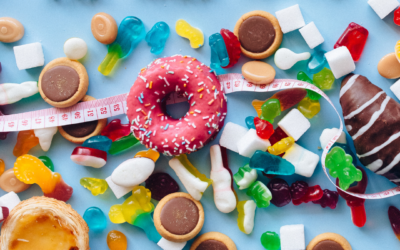Coffee – Friend of Foe?
Is drinking coffee healthy?
So many of my clients ask me “can I drink coffee?” when we put together a personalised nutrition plan.
Or when I meet friends, they might ask me “I didn’t think you’d drink coffee, isn’t that bad for you?”
First of all, I want to clarify one thing: There is no “good” or “bad” when it comes to coffee, just like with most other foods.
It always depends on the person and the amount that person is consuming.
When you are looking for studies, you can find tons of studies suggesting health benefits of drinking coffee and equally as many that show that coffee isn’t good for you.
Here’s one that says: “Coffee beans may be viewed as healthy vegetable food and a main supplier of dietary phenolic phytochemicals.” Health Effects of Coffee: Mechanism Unraveled? – PubMed (nih.gov)
Another article warns of the potential effects on sleep quality: “Given the importance of good sleep for general health and functioning, longitudinal investigations aimed at establishing possible causal relationships among coffee- and caffeine-induced changes in sleep quality and health development are warranted.” Coffee, caffeine, and sleep: A systematic review of epidemiological studies and randomized controlled trials – PubMed (nih.gov)
Unfortunately, I cannot find the study anymore, but I remember reading a research paper that suggested that it depends on your genes whether coffee has a positive or negative effect on you. BTW, if you are interested in doing a Nutritional DNA Test, I can help you there. The one I did for example, confirmed that I have a gene that metabolises coffee quickly, which explained why I was sometimes getting heart palpitations when drinking coffee and why drinking coffee in affected my sleep.
But everyone is different. And this is the beauty of personalised nutrition. One nutritionist tells you coffee is bad for you, another tells you coffee is good for you. And you give up!
Instead, I’d like to look at all your other symptoms.
- Are you often in a stressed state?
- Do you take time to relax regularly?
- Do you suffer from palpitation or other heart conditions?
- Do you have high blood pressure?
- Do you need coffee to get out of bed in the morning?
- Do you enjoy the taste of coffee and the company you are having a coffee with?
- Are you diabetic?
- Do you have trouble falling asleep or staying asleep during the night?
- How is your diet in general?
- Does coffee replace your meals?
- What type/brand of coffee do you drink? There can be huge differences in the amount of caffeine depending on the type of coffee.
- Do you drink other caffeinated beverages as well?
- Do you fully enjoy the experience of drinking coffee? Is it something you might even do to relax and meet with friends?

As you can see, my answer will depend on many factors.
So, here is my take on it:
If you need to drink coffee first thing in the morning to get going or be able to function, it is a sign that your morning cortisol is probably too low and this is something that should be addressed through other means such as relaxation or a specific nutrition and lifestyle plan.
If you need coffee because energy levels dip during the day, you might benefit from looking at your overall blood sugar balancing. Coffee, like sugar, gives you a false sense of energy – a bit like a bank loan can give you a sense of having lots of money. Real energy in your body is produced in your mitochondria and does not require caffeine. Again, a personalised nutrition plan can look into why your body is not producing its own energy. Are you getting sufficient nutrients that YOUR body requires?
Drinking coffee can affect your sleep – there’s no doubt about that. You can find this out easily by not drinking coffee in the afternoon or reducing the overall amount of coffee and checking if your sleep improves.
Some people experience severe headaches when they stop drinking coffee – this can be a sign that your body is so used to getting the caffeine fix and it might be a good idea to give your body a break from coffee for a while – to reset the body.
Drinking coffee for joy:
If you fully and mindfully enjoy your coffee, it can be heaven! If you enjoy your coffee over a relaxed chat with a good friend and make it a special occasion, there can’t be anything wrong with that!
Last year, one of the highlights for myself and my husband was the opening of a really good coffee shop on the seafront in Bray: Catalyst. Not only is their coffee absolute delicious – it creates this lasting aftertaste in your mouth – but there was always such a buzz and great vibes amongst the customers. For the brief time during which we could enjoy sitting on premises, going there for our coffees in the morning, enjoying the view over the sea, was a little escape. It was like being on holidays and took our minds briefly away from all the restrictions and stressors of life at the moment. It makes this lockdown a little bit more bearable and is something to look forward to at the weekends, starting our days with a walk and a coffee.
Drinking coffee is much more than just the consumption of coffee. If it means being part of a community and encourages social connectedness – these are all health benefits as well. It is well studied that people who live in Blue Zones (where people grow older and don’t have chronic diseases) also have a greater sense of community and social connectedness in their lives.
Enjoy your coffee this weekend!




